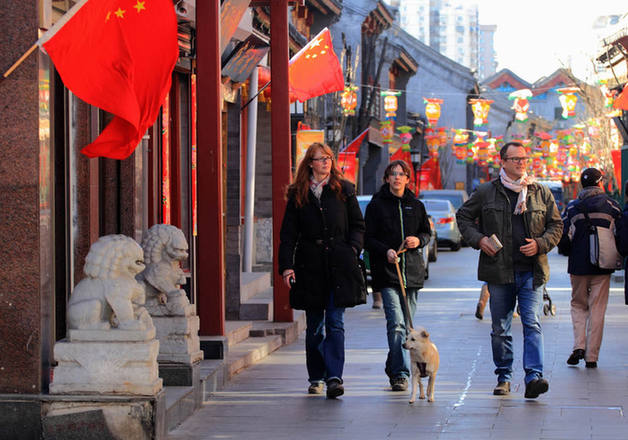Why Am I Drawn to a City of Smog?
By ROBERT PARKINSON
Staring out the window on a rainy Sunday, I have to say that life is a bit boring here. By “here” I am referring not to Beijing, but my quiet hometown in the U.K. This is no longer surprising to me. Recently several journalists interviewed me, asking if the thick smog would cause a massive outflow of expats from China. After reading the dismal reports from foreign news agencies, I decided it’s time to explain how I feel about smog after 10 years in Beijing.
Economic Meltdown?
Although the European economy has been shaky for the past two years, many Europeans still look forward eagerly to a booming economic upswing. These illusions were shattered cruelly in March, when The Guardian reported that the European crisis is far from over. On the contrary, the growing impoverished classes in seven European countries are suffering worse than ever. With this going on, why would expats go back?
On the other hand, with China’s growing prosperity, every foreign entrepreneur knows it is the place to look for profits. International companies only employ efficient, smart and creative people to establish and lead their branch offices in major cities and find out how much they can make on the Chinese market. This means that Beijing is a city full of talented and able expats. Speaking as an expat, business opportunities and elite connections are an important draw to this city, and I’m certainly not the only one that thinks so.
For those at management level, leaving Beijing means forfeiting half of their base salary. Foreign companies want to bring their best people to Beijing and keep them there for years, so they do their best to make life easy for employees in their new habitat. Most companies offer generous expat package plans, including housing funds, private cars and drivers, children’s education, living expense subsidies and pollution compensation for employees who work in China for long periods of time. All these expat benefits might exceed half an expat’s annual base salary. So for a foreign manager, leaving Beijing means lower pay and higher expenses. Would you give that up?
|
 |
|
Liulichang Antique Street is a magnet for international tourists. |
Witness to a Country’s Epic Changes
In Beijing, “change” is the one thing that stays constant. My job requires me to take frequent business trips to Hong Kong and Shanghai. After 10 years of travel, I can testify that neither city has developed as diversely as Beijing has. Ten years ago, Beijing was a city of shabby buildings, dirty roads, crowded buses, and few bars or malls. However, over the years the skyscrapers grew higher, the subways became modern (and much better than in Paris), and huge shopping malls appeared along wide and clean boulevards.
According to China’s National Bureau of Statistics, Beijing’s Gross Regional Product (see the chart) increased steadily between 2006 and 2012. Secondary and tertiary industries grew by over 50 percent in the same period.
The key factor in assessing a city’s development is the added value of its tertiary industry. Also, government investment in real estate increases every year. China’s achievements over the past decade impress and fascinate me. Beijing has become a brand-new city. I firmly believe that “change” is a key word for every country, city, and company for creating a better future.
Additionally, many expatriates and domestic migrant workers find it difficult to return home after the dynamism of Beijing. I often explain this with the cat allegory: imagine a cat, used to a cozy life at home, accidentally discovering the wonderful outside world. He could not experience anything better. Would he still be willing to stay at home and be a good cat? The answer is probably no. Once attracted to Beijing, people expect to be part of the city.
